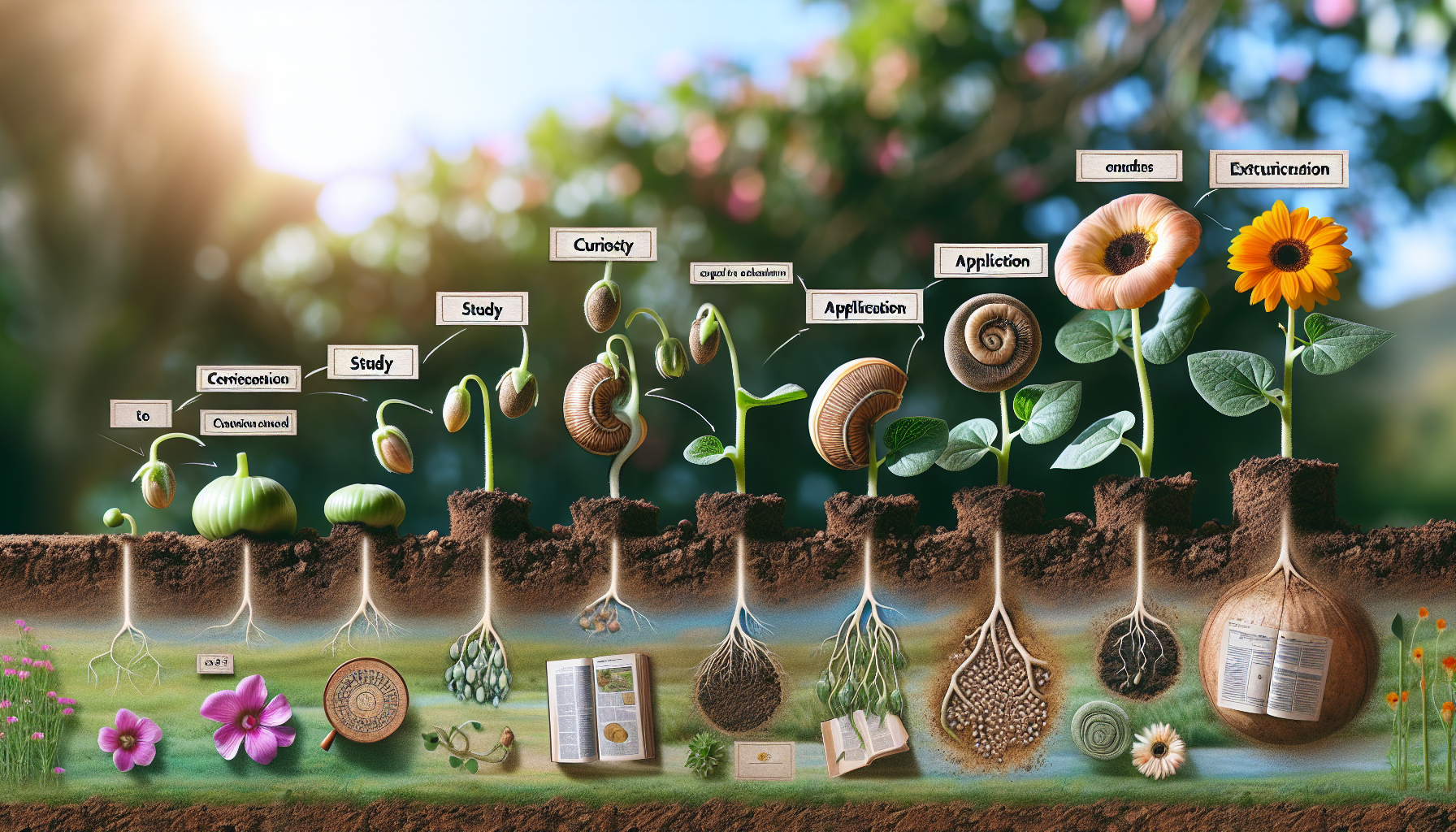From Intern to Innovator: Success Stories at Northrop Grumman

Interns at Northrop Grumman are immersed in a culture of innovation and collaboration from day one. For instance, Jessica Tran, who interned in the cybersecurity division, recalls her first project involving the development of security protocols for cutting-edge defense systems. "I was amazed at how much responsibility I was given," she shares. "It felt like I was truly contributing to something significant." Jessica's experience is not unique; many interns report being involved in meaningful projects that challenge them and enhance their skills. This hands-on approach is vital in bridging the gap between academic knowledge and practical application. The structured internship program at Northrop Grumman includes training sessions, workshops, and mentorship opportunities. Interns are paired with experienced professionals who guide them through their projects and offer insights into the industry. This mentorship is crucial, as it helps interns navigate the complexities of their work while fostering a sense of belonging within the company. For example, David Kim, who interned in aerospace engineering, noted that having a mentor helped him understand the intricacies of the projects he worked on, enhancing both his technical and interpersonal skills.
Turning Internships into Full-Time Opportunities
The success stories of former interns illustrate the potential for growth within Northrop Grumman. Take David Kim, for example. After completing his internship in aerospace engineering, he was offered a full-time position before graduation. "The internship experience was pivotal for me. It not only solidified my technical skills but also introduced me to the company culture," David explains. His journey from intern to innovator is a testament to the opportunities available within the organization. Moreover, Northrop Grumman actively encourages interns to apply for full-time roles, making the transition seamless. In fact, the company reports that a significant percentage of interns accept job offers at the conclusion of their programs, underscoring the effectiveness of their internship initiatives. According to Northrop Grumman’s career data, over 60% of interns transition into full-time positions, a statistic that speaks volumes about the quality of the training and the alignment of internship projects with the company's strategic objectives.
The Importance of Networking and Support
Networking plays a vital role in the success of interns. At Northrop Grumman, interns are encouraged to connect with professionals across various departments, fostering relationships that can lead to future opportunities. Maria Lopez, who interned in systems engineering, emphasizes the value of these connections: "I learned that every person has a unique perspective. Building relationships helped me understand different aspects of the company and the industry." This networking culture not only enhances collaborative efforts but also allows interns to gain insights that are critical in their professional development. Additionally, Northrop Grumman provides platforms for interns to showcase their work, such as poster presentations and intern symposiums. These events not only allow interns to share their projects but also facilitate recognition and feedback from leadership, further enhancing their professional development. This exposure to senior management can lead to greater visibility and opportunities within the company.
Advice for Future Interns
For those considering an internship at Northrop Grumman or similar organizations, the experiences of former interns offer valuable insights. Here are some key takeaways: 1. **Be Proactive**: Seek out projects that interest you and don't hesitate to propose ideas. Taking initiative can set you apart and demonstrate your commitment to learning. 2. **Network Actively**: Build relationships with colleagues and fellow interns. These connections can provide support, mentorship, and potentially lead to job offers. 3. **Embrace Feedback**: Constructive criticism is an opportunity for growth. Be open to feedback and use it to improve your skills and performance. 4. **Stay Curious**: The aerospace and defense sectors are always evolving. Keep learning and stay informed about industry trends to remain competitive. 5. **Seek Mentorship**: Don’t hesitate to ask questions and seek guidance. A mentor can provide invaluable insights that can help shape your career path.
The journey from intern to innovator at Northrop Grumman is not just about landing a job; it's about cultivating a mindset of growth and exploration. The experiences of Jessica, David, and Maria illustrate how internships can lead to fulfilling careers in high-tech industries. By fostering a supportive environment that values mentorship, collaboration, and innovation, Northrop Grumman is not only shaping the future of its interns but also the future of the aerospace and defense sectors. As prospective interns embark on their journeys, they should remember that their experiences at Northrop Grumman could very well be the launchpad for their careers, paving the way for innovation and excellence in the field.
Cybersecurity Analyst
Northrop Grumman, Lockheed Martin, Raytheon
Core Responsibilities
Develop and implement security protocols for defense systems and sensitive data.
Conduct vulnerability assessments and penetration testing to identify weaknesses.
Monitor network traffic for unusual activity and respond to security incidents.
Required Skills
Proficiency in cybersecurity tools (e.g., firewalls, intrusion detection systems).
Strong understanding of networking protocols and security frameworks (e.g., NIST, ISO).
Relevant certifications such as CISSP or CEH are highly desirable.
Aerospace Engineer (Systems Integration)
Northrop Grumman, Boeing, NASA
Core Responsibilities
Design and integrate complex aerospace systems, ensuring compatibility across various components.
Collaborate with cross-functional teams to develop testing protocols and validate system performance.
Analyze and resolve technical issues arising during the design and production phases.
Required Skills
Strong knowledge of CAD software and systems modeling tools (e.g., MATLAB, Simulink).
Familiarity with aerospace regulations and safety standards.
A degree in Aerospace Engineering or a related field, with relevant internship experience preferred.
Data Scientist (Machine Learning in Aerospace)
Northrop Grumman, Lockheed Martin, General Dynamics
Core Responsibilities
Utilize machine learning algorithms to analyze large datasets for predictive modeling.
Develop data-driven solutions to enhance operational efficiency in aerospace projects.
Collaborate with engineers to translate findings into actionable insights for design improvements.
Required Skills
Proficiency in programming languages such as Python and R, with experience in data visualization tools (e.g., Tableau).
Understanding of statistical analysis and machine learning frameworks (e.g., TensorFlow, Scikit-learn).
A degree in Data Science, Computer Science, or a related field, with experience in aerospace applications preferred.
Systems Engineer (Aerospace Defense Systems)
Northrop Grumman, Raytheon Technologies, BAE Systems
Core Responsibilities
Oversee the entire lifecycle of aerospace defense systems from conception to deployment.
Conduct requirements analysis and manage stakeholder communications to ensure project alignment.
Perform system validation and verification to comply with engineering standards.
Required Skills
Strong analytical skills and experience with systems engineering tools (e.g., DOORS, SysML).
Familiarity with project management principles and methodologies (e.g., Agile, Waterfall).
A degree in Systems Engineering or a related discipline, with experience in defense projects preferred.
Software Engineer (Embedded Systems)
Northrop Grumman, Boeing, Honeywell Aerospace
Core Responsibilities
Design and develop embedded software for aerospace applications, ensuring high reliability and performance.
Collaborate with hardware engineers to optimize software-hardware integration.
Conduct software testing and debugging, maintaining documentation for compliance.
Required Skills
Proficiency in programming languages such as C/C++ and experience with real-time operating systems.
Understanding of embedded systems architecture and hardware interfaces.
A degree in Computer Engineering or Software Engineering, with experience in aerospace or defense projects preferred.


